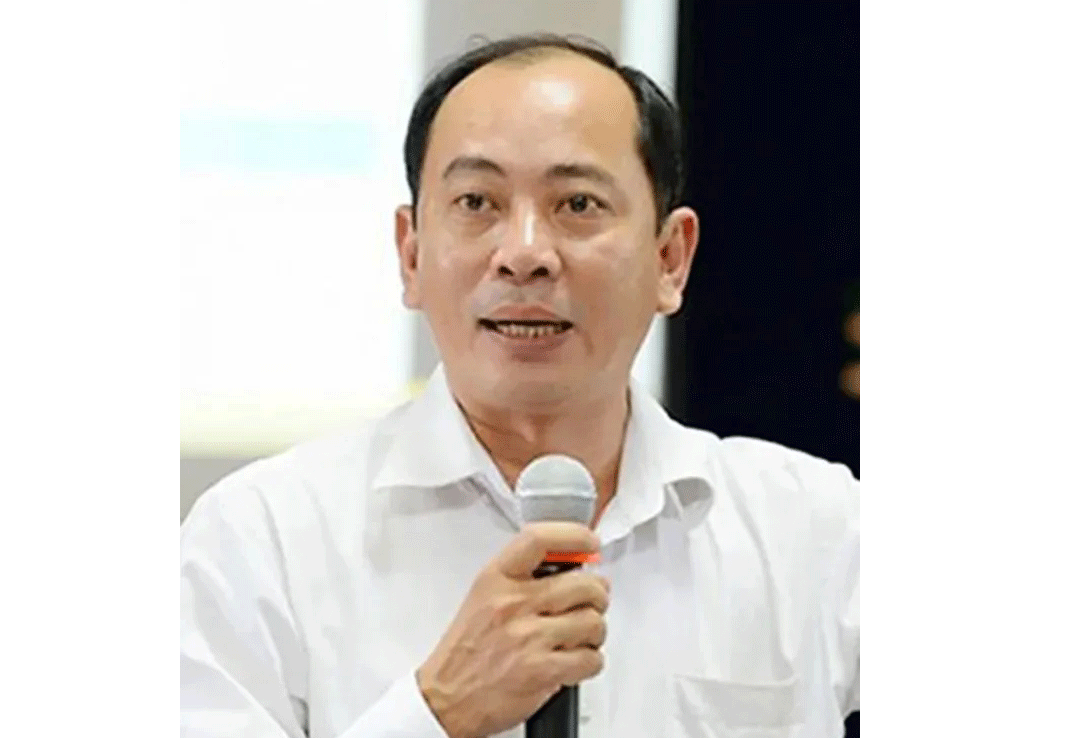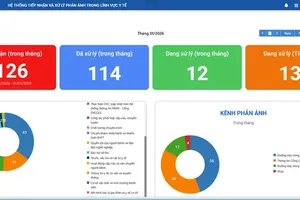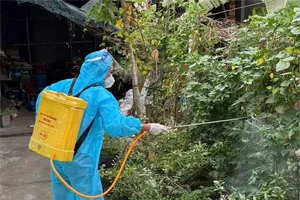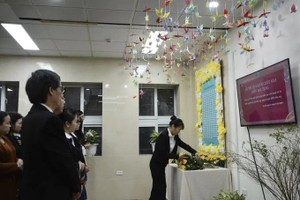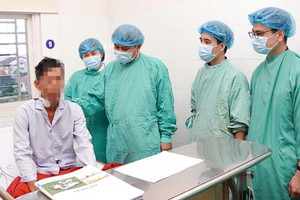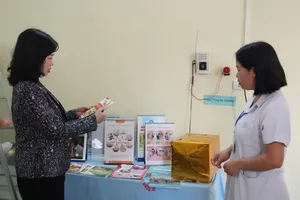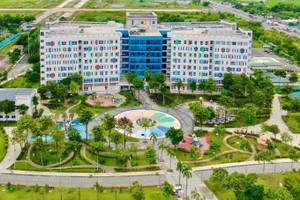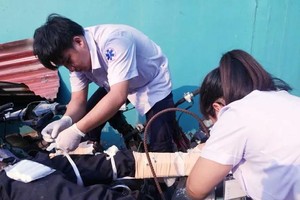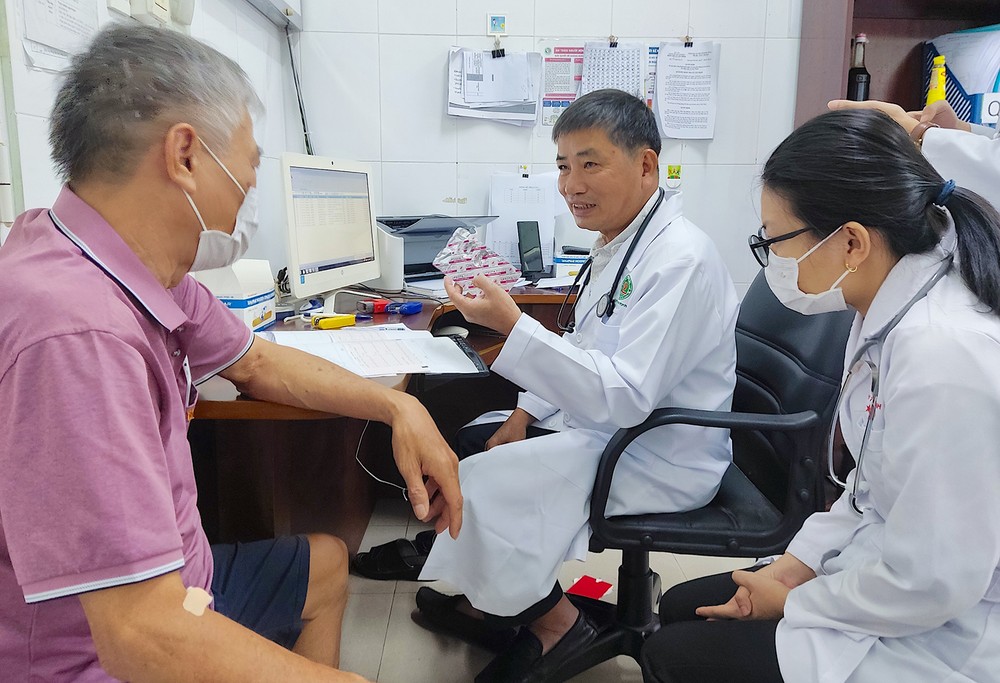
Deputy Minister of Health Prof. Tran Van Thuan said that right after the Law on the Elderly took effect, the Elderly Health Care Program until 2030 was approved by the Prime Minister. The Ministry of Health then issued a decision on the Ministry's action plan to implement the program.
Accordingly, the Ministry of Health and the Vietnam Association of the Elderly have closely coordinated in implementing healthcare programs for the elderly, achieving many results. About 3 million elderly have health monitoring records while nearly 4 million senior citizens receive regular medical checks and over 95 percent of elderly people have health insurance cards.
Professor Thuan said that along with that, the system of health care facilities for the elderly nationwide has initially formed and developed. Until now, approximately 49/63 general hospitals in provinces and cities were set up with geriatrics departments, more than 900 medical examination departments with separate rooms for the elderly; plus, over 10,000 inpatient beds for the elderly who receive disease treatment and rehabilitation treatment. Hanoi Medical University, Hue University of Medicine and Pharmacy, and Ho Chi Minh City University of Medicine and Pharmacy have had geriatric training faculties.
Moreover, he added the average life expectancy of Vietnamese people has increased but the number of years of healthy life is low compared to many countries. Specifically, women and men live with illness is about 11 years and 8 years on average. This causes older people to face the burden of double illness. On average, each elderly person has three chronic diseases whereas the health and geriatric system still lacks resources, equipment and human resources, so it cannot solve chronic diseases - typical diseases of the aging population.
According to Professor Thuan, people in remote areas, especially the elderly, still have difficulty accessing necessary medical services. In addition, planning and policymaking on the elderly have not kept up with the rapid pace of population aging.
Therefore, he said that the leadership and direction of Party committees and authorities on elderly health care should be enhanced. Propaganda and advocacy should be strengthened for behavioral change to create a supportive social environment to take care of people aged over 60.
Furthermore, the system of centers providing primary health care services, non-communicable disease prevention, medical examination and treatment for the elderly should be invested more. The government and the health sector should gradually build a long-term health care model for the elderly.
The capacity of medical examination and treatment and health care at the Geriatrics Department of general hospitals in cities and provinces should be enhanced while health facilities in districts and communes should provide annual health checks for the elderly. Last but not least, elderly health care clubs will be set up and a network of volunteers who are responsible for managing chronic diseases and non-communicable diseases at home for over-the-hill people should be developed.
Further, the government needs to improve legal policies related to elderly health care and diversify financial resources invested in elderly health care, gradually increasing the annual investment level. Only then will treatment and health care for the elderly be effective, and the elderly will lead more years of happy and healthy lives.
Vice Chairman Duong Anh Duc of Ho Chi Minh City People's Committee said that the government should take heed of social work staff for increasingly better care and medical examination and treatment for the elderly in Ho Chi Minh City in addition to the team of doctors, invest in facilities for grassroots health care and hospitals. He explained that social workers are helpers of medical facilities and districts in taking care of the elderly, but the country is short of social workers.









